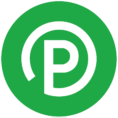The words we choose matter a lot to people around us. “I’m fine” is ambiguous. “I’m happy” is clear. “I’m sad” is vulnerable and open. As Product Managers –and for people in any leadership position, for that matter– our words have even more weight because of the expectations that our teams have for us to give clear guidance and strong support.
That’s a big part of why I like to challenge the use of “ownership” by product managers. It’s not bad per se, and you’re not a horrible person if you use it. However, it is time for an upgrade in language, and this one simple word can help you change the mindset, perception, and impact across your entire team.
Ownership
Let’s talk about “ownership” in a little detail first. No one at a company really “owns” any of it. Shareholders own the company. As product teams, we’re working together to solve customer problems.
In fact, you can look at actual “owners” of companies. Do you hear Mark Zuckerberg talking about how he “owns” Facebook? Nope. If he did, how would you like to be in a meeting with him that he opens with, “Hey folks, I own this company, so gimme the best you got!”
Whether you realize it or not, hearing that from someone in a leadership position is deflating. “OK, you own this product? Where does that leave me? Do I have any stake in this? Why should I care?”
To be clear, I’ve done this myself, and I received strong reactions from people when I did. In a discussion about “ownership” with a team member, I was told, “The way l see it, you own the business side, I own the customer, and this person owns the delivery.”
At first, this felt like a slap in the face. “But I own the product!” I fumed to myself.
Being Aware
I could tell that angry voice wasn’t helping me, or this situation. I thought about the dynamics of the team. If everyone feels like they “own” a piece, how are we working together to make something that customers want to use so much they’ll actually pay money for it?
It took some hard self-reflection to to realize how I was contributing to the problem. “Ownership” is just another way of saying “mine.” As a product manager, as a product team, as a company, success is always limited by the amount of “mine” that’s present. If people only care about what’s theirs, they’re not sharing information about dependencies, helping upstream and downstream partners do their work together, or iterating based on feedback. You know… collaborating.

Collaboration
So, word change. I stopped saying what I “owned” and started saying, “this is what I am responsible for.” Another way of saying it is, “if this doesn’t work because we never should have built this feature in the first place, then it’s my job and reputation on the line ,” and also saying, “I can’t do this alone.” Responsibility means: “this is my contribution to help the team, to help the product, and to help the customers.” It’s what I am going to hold myself to account for. It’s what I will do to build trust with my team.
“This is my contribution to help the team, to help the product, and to help the customers.”
Over a relatively short period of time, there was positive change with the team. I found all the people on the team appeared to be more bought into their work. Formerly disengaged engineers started to comment on product requirements documents. We had open discussions about what we each felt responsible for as a team, mainly the success of the product and for serving our customers well. We quickly started seeing how much we shared in responsibility.
First, the word-change helped me to express how I didn’t think I was the only one responsible for the team being successful, but that I had a big part in that success. Second, that product managers are far more visible than others on the team when our work wasn’t successful. Lastly, and most importantly, it helped me to keep that Product Manager Arrogance™️ in check.
Benefits
I won’t claim this fixed all our teams’ problems, but it did help significantly. Now, I consciously try to use the word “responsibility” wherever I can. When meeting new people at a company, I try saying “I’m responsible for…” and asking them what they feel responsible for. I am positive that this has created a foundation of openness with engineers, designers, marketers, and even other product managers. I see it in how differently the teams I am responsible for approach problems, ask for support.
“When we know better, we do better.”
I like to borrow the phrase, “when we know better, we do better.” We’re learning every day how our words affect others. Try this one out for size, and if you’re an actual Scrum Product Owner…well, I would love to discuss this directly with you!

 Get it on Google Play
Get it on Google Play